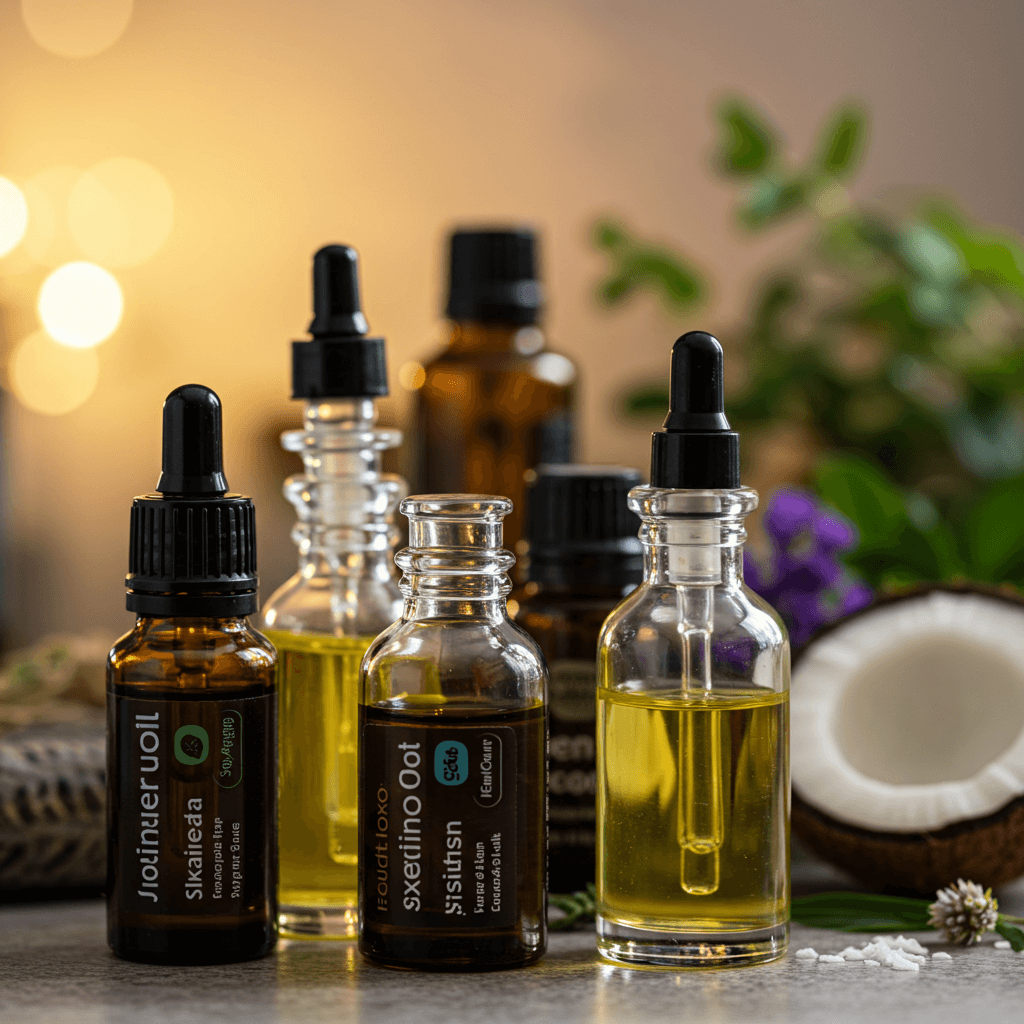When people explore aromatherapy for wellness or skincare, the spotlight usually shines on essential oils. But before you blend or apply anything, there's something just as important to consider: carrier oils.
Carrier oils are the unsung heroes of aromatherapy, and understanding them is key to creating safe, effective essential oil blends. In this first part of our Aromatherapy 101 series, we’ll explore what carrier oils are, how they’re used, and how to choose the right one for your DIY skincare, massage oil, or wellness routine.
What Are Carrier Oils? A Foundational Guide for Aromatherapy
Carrier oils are plant-based oils extracted from the fatty parts of a plant, typically from seeds, nuts, or kernels. Unlike essential oils, which are highly concentrated and evaporate quickly, carrier oils are non-volatile, meaning they don’t evaporate and have little to no scent.
Their main role in aromatherapy is to dilute essential oils, allowing them to be safely applied to the skin. Essential oils are powerful and can cause irritation or sensitization if used undiluted—carrier oils make them gentle, effective, and skin-compatible.
But carrier oils do more than just “carry.” They are rich in essential fatty acids, vitamins (such as A, D, and E), and antioxidants, making them incredibly nourishing and hydrating. This makes them an essential part of not just aromatherapy, but also natural skincare and massage.

Some examples include: Argan, Jojoba, Sweet Almond, Grapeseed, Olive, Avocado, Fractionated Coconut, Apricot Kernel, Sunflower, Rosehip, HempSeed, and Castor Oil.
See our selection here
Why Use Carrier Oils? Benefits for Safety, Skincare, and Absorption
Using essential oils without a carrier oil can lead to adverse skin reactions such as redness, burning, irritation, or long-term sensitization. That’s why carrier oils are more than just a base—they’re a vital part of safe and effective aromatherapy.
Top Reasons to Use Carrier Oils with Essential Oils:
1. Dilution for Safety
Essential oils are extremely potent. Applied undiluted, they can cause skin irritation, especially for those with sensitive skin or underlying conditions. Carrier oils safely dilute essential oils, reducing the risk of adverse reactions while preserving their therapeutic properties.
2. Enhanced Absorption
Carrier oils help distribute essential oils more evenly across the skin, allowing for better absorption. Their fatty acid content aids in deeper penetration, making your blends more effective.
3. Skin Nourishment
Many carrier oils are naturally rich in vitamins A, D, and E, as well as essential fatty acids and antioxidants. These nutrients support skin hydration, elasticity, and repair—making carrier oils valuable skincare ingredients in their own right.
4. Prolonged Therapeutic Effect
Unlike essential oils, carrier oils are non-volatile. They slow down the evaporation of essential oils, keeping them on the skin longer for extended therapeutic benefits.
5. Versatile DIY Applications
Carrier oils are the perfect base for a variety of DIY aromatherapy and skincare projects, including:
Massage oils
Facial serums
Rollerball blends
Body butters
Lip balms
6. Extended Shelf Life
Some carrier oils contain natural antioxidants that help prolong the shelf life of essential oil blends, making them more stable and long-lasting.
Choosing Your Carrier Oil: Factors to Consider
With a wide variety of carrier oils available, selecting the right one depends on several factors:
Skin Type: Different carrier oils suit different skin types (oily, dry, sensitive, mature, acne-prone).
Desired Therapeutic Effect: Some carrier oils have specific therapeutic properties (e.g., anti-inflammatory, moisturizing, regenerating).
Absorption Rate: Carrier oils vary in how quickly they are absorbed into the skin (e.g., fast-absorbing "dry" oils vs. slower-absorbing "rich" oils).
Aroma (or lack thereof): While subtle, some carrier oils have a distinct aroma that may or may not blend well with your chosen essential oil.
Shelf Life: Carrier oils have varying shelf lives and should be stored properly to prevent rancidity.

Part 2, Coming Soon!
In our next installment, we will explore some of the most popular and versatile carrier oils in detail, discussing their individual properties, benefits, and best uses in aromatherapy. Stay tuned to unlock the full potential of your essential oil blends!




